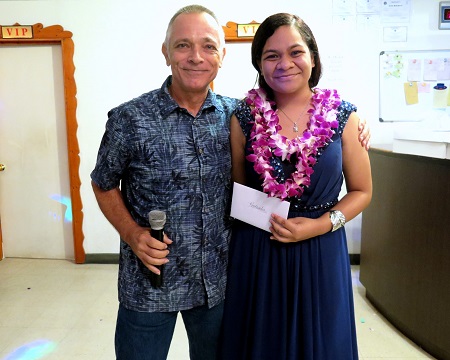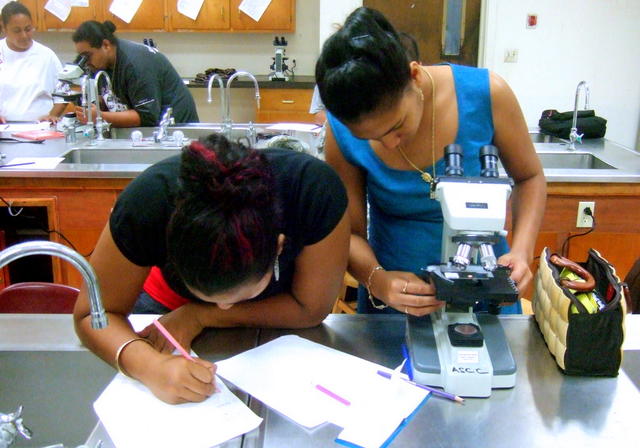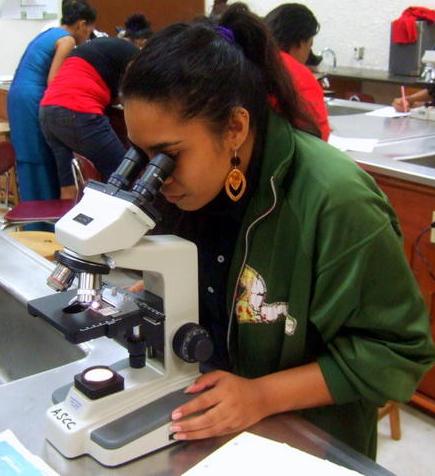

The mission of the Science Department is to inspire the student community through educational services, research, and outreach programs in the broad areas of the basic sciences. Within the Science Department, there is currently one degree program, an Associate of Science degree in Marine Science. The department offers introductory and transferable courses in the areas of Biology, Chemistry, Oceanography, and Physics that fulfill the basic requirements for graduation. In addition, the department offers a two-semester biology sequence for the life sciences such as nursing, pre-medicine, pre-chiropractic, pre-dental, pre-veterinarian, and allied health majors as well as other science majors. By taking advantage of our natural surroundings, the Science Department is proud to offer a hands-on, comprehensive Marine Science program for its students to explore, understand, and appreciate the importance of the influence the ocean has on our planet’s climate, as well as learn about marine organisms and habitats both locally and globally. The department is committed to a strong science program that strives to work with the latest technologies, and that explores environmental and human life sustainability issues in order to produce the next generation of leaders.
To meet this mission, the department offers the following degree and certificate programs of studies:
- Associate of Science degree in Marine Science
- Certificate of Proficiency in Marine Option Program (MOP)
Science offers the following courses.

Program Student Learning Outcomes
- Competence in comprehending, interpreting, evaluating, and application of physical and biological scientific data.
- Competence in demonstrating logical, conceptual, analytical and critical modes of thinking.
- Demonstrate logical problem-solving through analyzing data patterns and functional relationships to answer questions and determine causes.
- Comprehend and apply scientific concepts across disciplines utilizing a variety of techniques and technologies.
- Demonstrate the ability to function successfully in laboratory and field settings in order to produce quality scientific research following the scientific method.
| Community Advisory Council | Chairperson and Faculty |
| Dr. Kristen Jensen | Dr. Randel DeWees, Chairperson |
| Dr. Sean Stracensky | Mr. Murali Gopalan, Faculty |
| Dr. Tim Clark | Mr. Alden Tagarino, Faculty |

